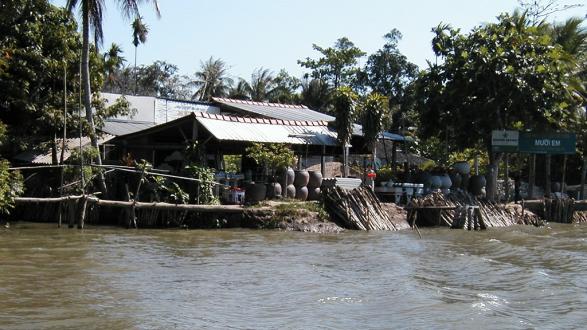Teleconference call
Read a summary of this teleconference.
The third installment of the Pacific Council’s Summer Teleconference Series, on South Asia’s shortage of drinkable water.
Transboundary rivers such as the Ganges, Indus, and Mekong have defined the geography, history, and culture of South and Southeast Asia for centuries and are critical to economic growth, food and energy security, and sustainable development within the region. But over the last few decades, these rivers have come under considerable pressure from industrial development, urbanization, population growth, and environmental pollution.
This situation has been compounded by poor domestic management of water resources and increasing variability in rainfall and climate patterns that have made South and Southeast Asia highly susceptible to floods, droughts, and natural disasters. A 2015 UN World Water Development Report warns that by 2030, only 60 percent of the region’s demand for water will be met by existing resources at the current rate of use. Water scarcity is already a daily reality for many South and Southeast Asians.
What can be done to help solve South Asia’s burgeoning water crisis? How does Asia’s local water scarcity connect to the issue of global water scarcity?
Listen to the full conversation below:
Featuring:
Dr. Zafar Adeel, Executive Director, Pacific Water Research Centre, Simon Fraser University
Zafar Adeel's research interests lie at the intersection of water security with the international development agenda, particularly the Sustainable Development Goals (SDGs). Read more.
Dr. Isha Ray, Co-Director, Berkeley Water Center, University of California, Berkeley
Isha Ray's research interests are water, sanitation, and development; water and gender; technology and development; and common property resources. Her research projects focus on access to water and sanitation for the rural and urban poor, and on the role of technology in improving livelihoods. Read more.
Moderator:
Ms. Courtney Weatherby, Research Analyst, Stimson Center
Courtney Weatherby's research focuses on infrastructure development, climate change, and energy issues in Southeast Asia, particularly the food-water-energy nexus in the Mekong River basin and China’s investment in regional energy infrastructure. Read more.




